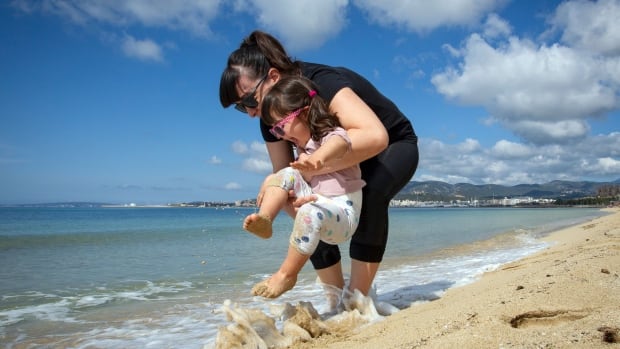“Are you interested in unraveling the mystery behind why humans live such long lives compared to other primates? Well, a groundbreaking study from Cornell University may hold the key, pointing towards the crucial role of a mother’s care in shaping our longevity.
Unveiling the Evolution of Longevity Through Maternal Care
According to the study published in the renowned journal Proceedings of the National Academy of Sciences, the intense bond between mothers and their offspring plays a pivotal role in the evolution of ‘long, slow lives.’ Lead author Matthew Zipple highlights how this unique mother-child relationship extends far beyond just nurturing, influencing the extended lifespans observed in humans and other social mammals.
While the findings shed light on the physiological and evolutionary aspects linking maternal care to longevity, concerns arise regarding misinterpretation. Some experts warn against misconstruing the study as a mandate for modern mothers to increase their caregiving hours, emphasizing that the research delves into demographic tendencies on a species level rather than dictating individual parenting practices.
Navigating the Complexities of Maternal Care
Delving deeper into the study’s implications, it becomes clear that ‘maternal care’ goes beyond the conventional notions of hovering over children and enrolling them in numerous activities. Professor Andrea O’Reilly underscores the significance of understanding the study in context, emphasizing the prolonged, intimate connection between mother and child that shapes offspring survival, rather than succumbing to societal pressures and unrealistic expectations placed on mothers today.
Encouragingly, study author Matthew Zipple reinforces that there is no ‘right’ way to be a mother, as the research offers invaluable insights into our evolutionary past and the intricate social dynamics that have shaped our lives for centuries. Evolution, he asserts, does not dictate a prescribed set of behaviors, leaving room for individuals to forge their unique paths of caregiving.
Unpacking the Mother and Grandmother Hypotheses
Building upon the ‘mother and grandmother’ hypotheses, the study extends its scope to unravel the intricate relationships between generations and longevity. Theories explaining menopause and the contributions of older females in raising grandchildren highlight the evolutionary advantage of collective caregiving over individual reproduction, shedding light on the interconnectedness of familial bonds in various mammalian species.
While these hypotheses offer tantalizing insights into the complexities of mammalian social structures, caution is advised in interpreting them outside the broader evolutionary context. As we unravel the mysteries of maternal care and its profound impact on longevity, it is crucial to view these findings as pieces of a larger puzzle rather than definitive answers to complex societal issues.
In conclusion, the study on maternal care and longevity opens up a window into the intricate tapestry of human evolution and social dynamics. While it offers intriguing perspectives on the vital role of mothers in shaping our lifespans, it also underscores the need for nuanced interpretations and a balanced approach towards understanding the diverse facets of caregiving across species. As we continue to uncover the secrets of our evolutionary past, let us embrace the complexity of maternal care with empathy, understanding, and a sense of wonder at the marvels of life’s intricate design.”
Reference















